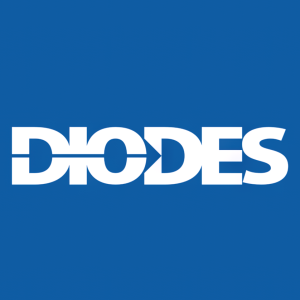Automotive-Compliant Synchronous Buck Converters from Diodes Incorporated Feature Innovative Noise Reduction and Power Good Indicator
Diodes Incorporated (Nasdaq: DIOD) has launched two new synchronous buck converters, the AP63356Q and AP63357Q, designed to simplify circuit design in automotive power systems. These converters, capable of delivering up to 3.5A with a voltage range of 3.8V to 32V, feature integrated components that reduce costs and board size. They include an innovative Power Good indicator and advanced EMI mitigation technology, enhancing efficiency and noise performance. Both devices are qualified to AEC-Q100 Grade 1 and priced at $0.46 in bulk.
- Launch of new synchronous buck converters (AP63356Q, AP63357Q) targeting automotive applications.
- Devices reduce bill of materials (BOM) costs and board size due to high integration.
- Support for advanced EMI mitigation, improving performance in noise-sensitive applications.
- High efficiency with AP63357Q maintaining up to 86% efficiency at light loads.
- Qualified to AEC-Q100 Grade 1, indicating reliability in automotive applications.
- None.
PLANO, Texas--(BUSINESS WIRE)--Diodes Incorporated (Nasdaq: DIOD) has announced two highly integrated synchronous buck converters that simplify circuit design in automotive power systems with its Power Good output and its innovative EMI mitigation for noise-sensitive applications.
The AP63356Q and AP63357Q are 3.5A converters with an input voltage range of 3.8V to 32V. Leveraging peak current mode control as well as high-side and low-side power MOSFETs on-chip, the converters minimize external components to reduce bill of materials (BOM) costs and board size.
Both devices have a Power Good indicator with an internal 5MΩ pull-up resistor useful for power sequencing. To further aid sequencing, their enable pin has accurate voltage thresholds, which allows adjustment of the input voltage device power-on and undervoltage lockout (UVLO). The high-voltage capability of the EN pin allows direct connection to VIN to simplify the auto-start of the device. When disabled, the converter draws only 0.6µA shutdown current typical.
Their proprietary gate-driver scheme ensures clean switching transitions while preventing switch-node ringing to minimize high-frequency radiated noise. Frequency spread spectrum (FSS) contributes further to quiet performance by dispersing switching-noise energy.
The AP63356Q operates continuously in PWM mode at the nominal 450kHz switching frequency for all loads. The AP63357Q changes to PFM mode at light loads, keeping efficiency as high as
Both devices feature low-dropout (LDO) operation, which maintains their output-voltage regulation as the input reduces to a level near the output voltage. Built-in protection features include output undervoltage protection (UVP), cycle-by-cycle peak current limit, and thermal shutdown. The protection features, along with 40V (for 400ms) input voltage surge withstand capability, enable the devices to provide a robust Automotive POL solution.
The AP63356Q and AP63357Q are qualified to AEC-Q100 Grade 1, support PPAP documentation, and are manufactured in IATF 16949 certified facilities. The devices are each available in a 3mm × 2mm V-DFN3020-13 (SWP) package with wettable flanks to aid in automated optical inspection. The unit price is
About Diodes Incorporated
Diodes Incorporated (Nasdaq: DIOD), a Standard and Poor’s SmallCap 600 and Russell 3000 Index company, delivers high-quality semiconductor products to the world’s leading companies in the consumer electronics, computing, communications, industrial, and automotive markets. We leverage our expanded product portfolio of discrete, analog, and mixed-signal products and leading-edge packaging technology to meet customers’ needs. Our broad range of application-specific solutions and solutions-focused sales, coupled with worldwide operations of 28 sites, including engineering, testing, manufacturing, and customer service, enables us to be a premier provider for high-volume, high-growth markets. For more information visit www.Diodes.com.







